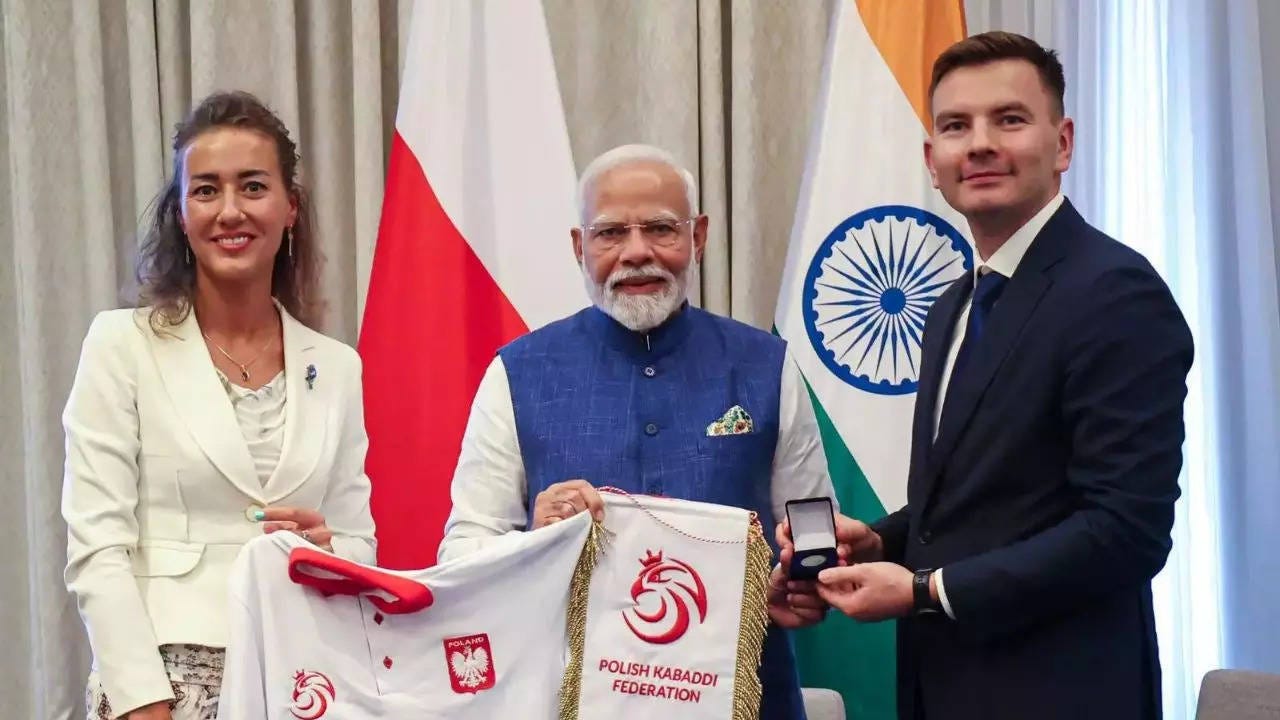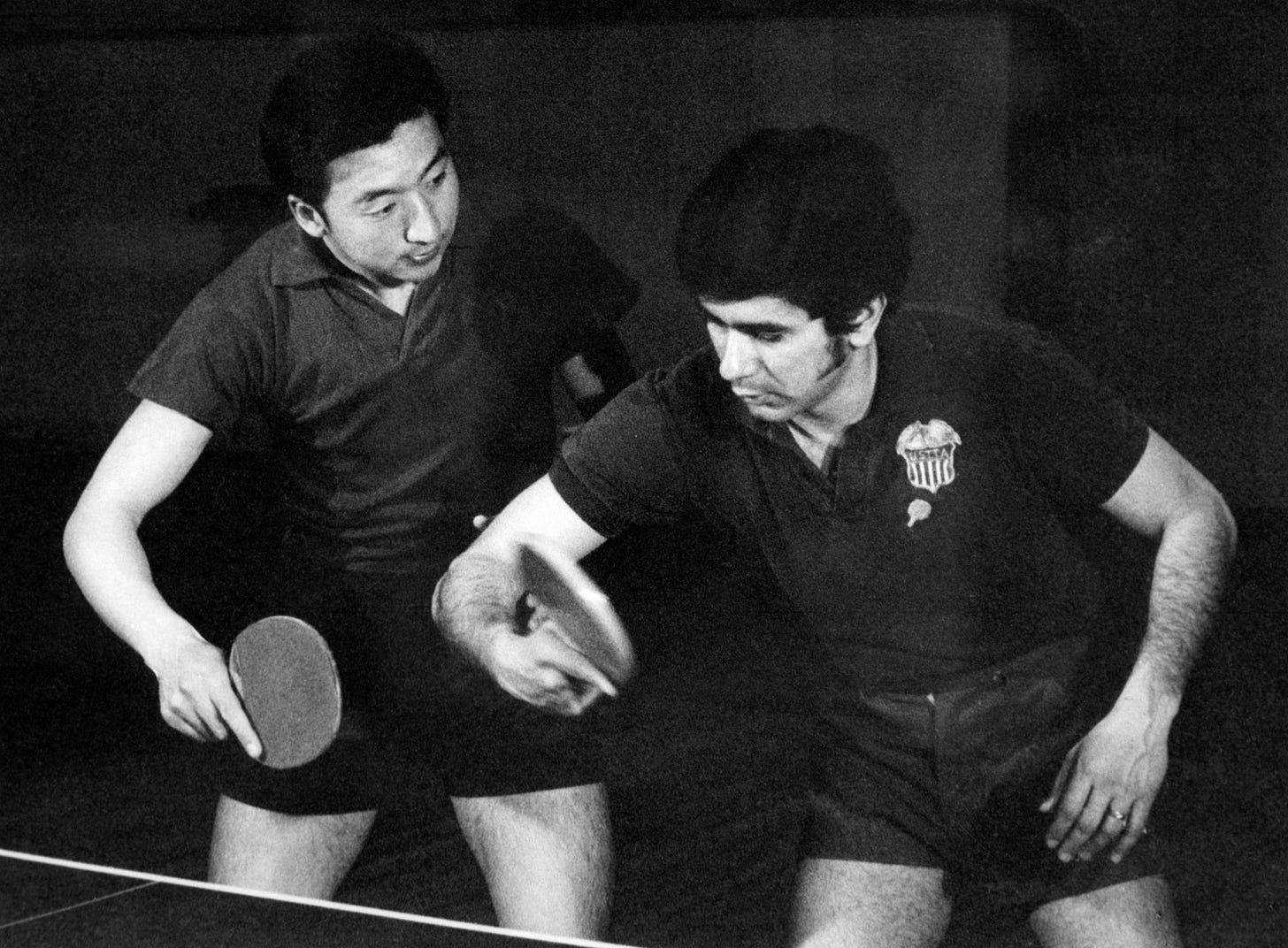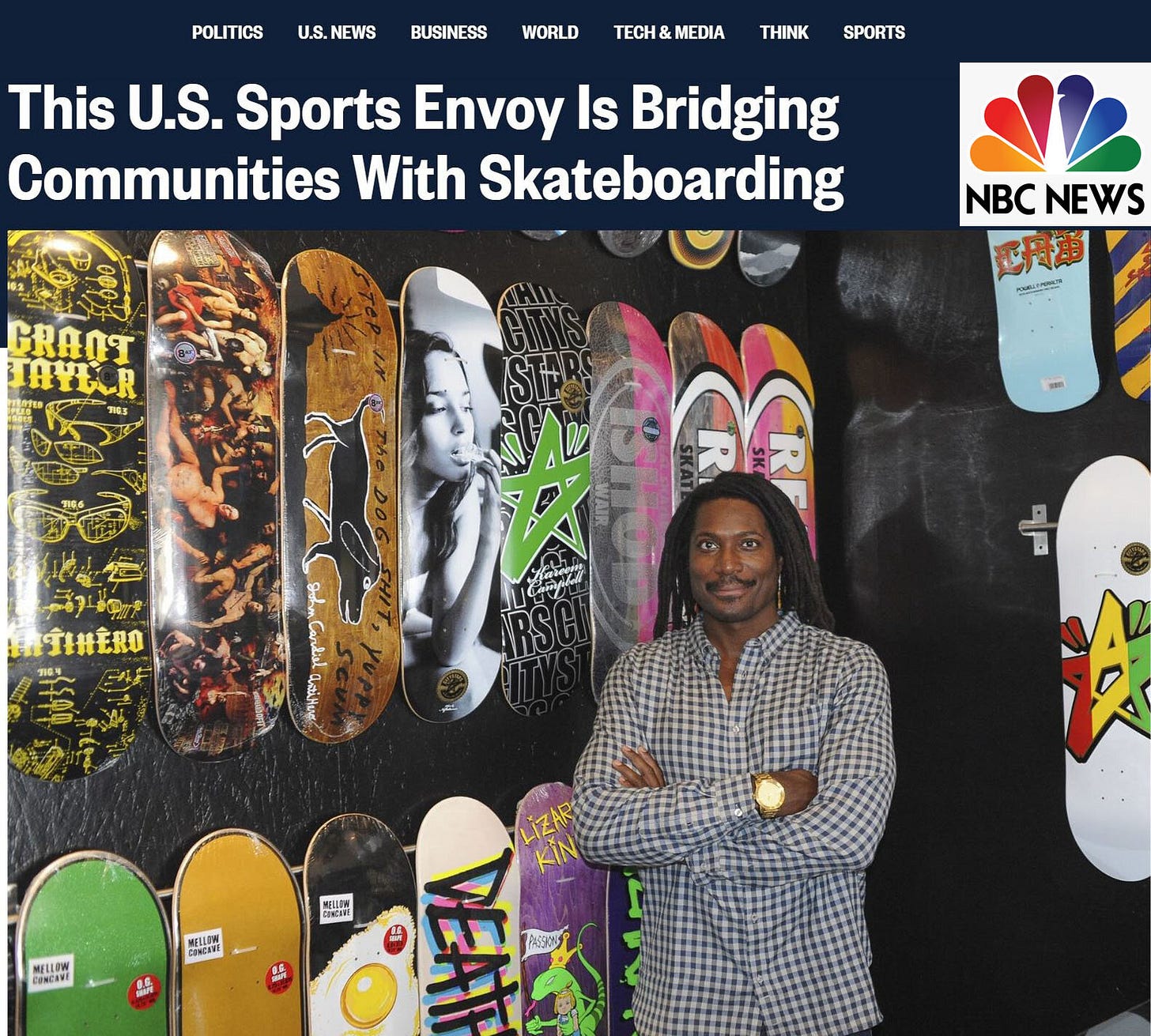How kabaddi, yoga, and sailing show that sports may be the world’s most dynamic diplomatic tool
Gavin Price expertly explores the wonderful world of sports diplomacy, showcasing its unmatched flexibility and diversity as an international engagement and cultural relations platform

Introduction: The Wonderful World of Sports Diplomacy
For those less familiar with the practice of sports diplomacy, it might be easy to assume that the discipline mainly focuses on international engagement activities through popular sports such as athletics, basketball, football, or rugby. While these powerhouse sports are indeed very important tools for sports diplomats, the reality is that the profession has an incredible history of using the full spectrum of sporting and cultural pursuits to promote global connections and understanding.
One of the most frequently referenced examples is 'Ping Pong diplomacy,' which typically refers to the exchange of table tennis players between the United States and China in the early 1970s. This unexpected sports diplomacy was crucial in improving relations between the two countries, which had been tense since the Chinese Civil War and the Korean War. Ultimately, this exchange paved the way for then-US President Richard Nixon's historic visit to China in 1972, marking a significant turning point in Sino-American relations.

In the present day, the positive impact of ping-pong diplomacy has diversified. For instance, the World Table Tennis for Health Festival will occur in Maizières-lès-Metz, France from October 23-27, 2024. The event is anticipated to draw over 280 participants, coaches, and attendees. It aims to celebrate the positive influence of table tennis on health, well-being, and social inclusion. Additionally, young table tennis players like Welsh teen sensation Anna Hursey and Scottish Para athlete Martin Perry have become advocates for climate change in sports through their involvement with the United Nations and activities focused on future generations.
In more recent times, action sports such as snowboarding, skateboarding, surfing, freeskiing, hiking, and mountain biking are increasingly being used for sports diplomacy by nations, cities, and regions. These sports support activities such as placemaking and city branding initiatives, and connecting citizens and visitors with stunning natural and physical landscapes. They also play a significant role in social inclusion activities, tourism, and well-being. Often, they are combined with cultural phenomena such as fashion, dance, and music to create positive connections among younger generations and showcase progressive profiles of communities to the world.
Malmö, in Sweden, is a striking example of a city that has embraced skateboarding culture and infrastructure, earning it the reputation of being a skate city. The city has invested in building numerous skate parks and facilities that harmonise with public spaces, drawing skateboarders from all over the world and creating a welcoming environment for local residents. Additionally, Malmö hosts major skateboarding events such as the Vans Park Series, further solidifying its status as a hub for the global skateboarding community. This proactive approach by the city, along with its support for skateboarding as a sport and lifestyle, has firmly established Malmö as a renowned destination for skateboarders and action sports enthusiasts while promoting an active lifestyle for the city’s citizens.

Many other sports and cultural pursuits play a similar role in the sports diplomacy playbook. The remainder of this article provides brief case studies from India and Cyprus to demonstrate the diverse role of other sports and physical activities in diplomacy. These include exploring how traditional practices like yoga, strategic games like kabaddi, and specialist sports like sailing play a significant role in sports diplomacy.
The discourse presented suggests that sports could be the world's most diversified and malleable diplomatic tool, given its potential to contribute positively to soft and hard power initiatives, human security challenges, social inclusion, and a myriad of other domestic and global challenges.
Yoga and Kabaddi Diplomacy (India)
India has a rich, storied history of using yoga as a diplomatic tool. A shining example is the International Day of Yoga (IDOY), proposed by Indian Prime Minister Narendra Modi and unanimously adopted by the United Nations General Assembly in 2014 through resolution 69/131. This UN proclamation encourages people worldwide to come together on 21 June every year to celebrate the ancient practice and art form.
In support of the IDOY, the Indian Government has previously organised large, socially inclusive yoga events in various countries. Indian diplomatic missions actively promote these events abroad, aiming to showcase India's cultural heritage, promote wellness, and foster goodwill and understanding among nations. This ongoing effort demonstrates India's commitment to using yoga as a tool for diplomacy and cultural exchange on an international scale.
Looking ahead, I anticipate that India will increasingly deploy its sports and cultural resources as a diplomatic or soft power tool. As recently as August 2024, Prime Minister Modi visited Poland to celebrate the 70th anniversary of diplomatic relations between both nations. During his headline speech, Modi highlighted an unexpected but important connection in the Polish-Indian relationship: Kabaddi.
Poland has been involved in top-tier Kabaddi for quite some time. The Polish men's national team made it to the 2016 Kabaddi World Cup in Ahmedabad, an incredible achievement. In a preliminary group match, the Poles triumphed over the then-World Champions, Iran, highlighting Poland’s growing stature in the sport.
Polish players have also made a significant impact on India's Pro Kabaddi League. Michal Spickzo, a tenacious defender, made history as the first European to participate in the league when he joined the Bengaluru Bulls in 2015. More recently, Piotr Pamulak followed in Spickzo's footsteps by also joining the Bengaluru Bulls in the 2023 season. Poland's involvement in Kabaddi adds a fascinating international dimension to this uniquely Indian game, fostering a seemingly unlikely extra connection between both nations.

India already has a promising opportunity to expand its boutique sports and cultural diplomacy offer with another partner nation. In March 2024, during a First Minister’s speech in London to celebrate St. David’s Day, the Welsh Government launched its ‘Wales in India’ program. This year-long initiative aims to strengthen ties and opportunities between Wales-Cymru and India by fostering new trade and investment opportunities, promoting cultural and sporting connections, and establishing academic and healthcare collaborations.
Given the significant and long-established Indian diaspora in Wales, the 'Wales in India' program provides an excellent potential opportunity for kabaddi and yoga diplomacy to once again form part of the cultural exchange. Wales already has its own advanced sports diplomacy approach, which even included a program of Hockey Diplomacy at the 2023 FIH Hockey World Cup hosted by India, where Wales played group matches in Bhubaneswar and Rourkela.
In light of this context, there is great potential for knowledge exchange between Wales and India in the realm of sports diplomacy. This could have positive effects on other areas of mutual interest, such as trade, economic development, cultural relations, and politics. By using physical and cultural pursuits as a means to connect people and officials from various sectors, broader discussions could be facilitated. It might not be entirely unrealistic to anticipate a significant yoga event in Cardiff Bay or the hosting of a top-tier Kabaddi fixture in Newport, Swansea or Wrexham in the near future.
Sailing Diplomacy (Cyprus)
The peacebuilding challenges between communities in Cyprus are complex. The island has been divided since 1974, and efforts to reunify the Greek and Turkish Cypriot communities have faced many obstacles. Deep-rooted historical grievances, territorial disputes, and the presence of a United Nations buffer zone all contribute to the situation's complexity.
Issues related to property rights, governance, security, and the return of internally displaced persons still need to be addressed. The lack of mutual trust between the Greek and Turkish Cypriot communities, as well as separate education and media systems, have hindered efforts towards reconciliation and positive community reintegration.
The influence of external actors and the broader geopolitical context in the Eastern Mediterranean region further complicate the peace-building process. Overcoming these challenges requires sustained commitment, dialogue, and cooperation between the communities, as well as support from the international community.
In light of this status quo, sports diplomacy is playing an increasingly important role in fostering reconciliation for the island’s younger generations. As a shining example, in 2023, Sophia Papamichalopoulos, an Olympic-level skier and International Olympic Committee (IOC) Leader, conceived, initiated, and led the ground-breaking ‘Winds of Change’ project with a vision to unite young people through sailing and the Olympic Values.
In practice, the ‘Winds of Change’ initiative brought together a team of young Greek and Turkish Cypriots to embark on the first-ever intercommunal sailing team voyage around the divided island. The project aimed to challenge perceptions, empower youth, and inspire a new generation to bridge the divide between the Greek Cypriot and Turkish Cypriot communities and build positive connections through the power of sport.
In preparation for this historic voyage, which symbolically circumnavigated both Greek and Turkish Cypriot waters, Sophia expressed:
As a former athlete and Olympian, I am a firm believer that sport has the power to change the world, and as a daughter of a refugee, I believe that we can all play a role in building peace together. Next to the political peace negotiations, I feel that we should be using sport more to build peace on a community level, to create neutral grounds for dialogue, to give rise to common experiences, and to create a common purpose (United Nations Peacekeeping online, 2023).
A dedicated film crew followed this project’s journey, capturing pivotal moments for an upcoming documentary production. This documentary aims to showcase how the power of sports can inspire and promote peace on a global scale. For those interested in sports diplomacy, particularly the role of sports in peace and reconciliation processes, or those who simply enjoy sports and real-life stories that signal hope, peace, and goodwill in the world, I recommend keeping an eye out for this production’s forthcoming release. It is aptly titled 'Winds of Change'; you can find a short teaser trailer here.

In the midst of the increasing conflict in the Middle East, Cyprus, an European Union member state in the Eastern Mediterranean, is gaining attention. Its ports are crucial for delivering aid to the besieged Gaza Strip, and the country is increasingly becoming a gathering point for those fleeing the violence in the region. While sports diplomacy alone cannot bring peace and stability to the Middle East and the wider Eastern Mediterranean region, initiatives like the 'Winds of Change' project show that it can play a significant role in encouraging peace and reconciliation. Taking a cautiously optimistic approach, let’s hope that once the conflict subsides and traditional diplomacy becomes more effective, key stakeholders will acknowledge and deploy sports diplomacy as an important component in the journey towards recovery, peace, and prosperity for all.
My sincere thanks to my colleagues in sports diplomacy. Arnaud Amouroux introduced me to the case study on sailing diplomacy in Cyprus, and Neftalie Williams provided insights into the skate city project in Sweden. Merci beaucoup, diolch, thank you friends!





A great story that covers the official launch of the 'Winds of Change' documentary film and is directly connected to the sailing diplomacy example in my article:
https://www.cbn.com.cy/article/2024/10/16/800982/inaugural-screening-of-winds-of-change-documentary/